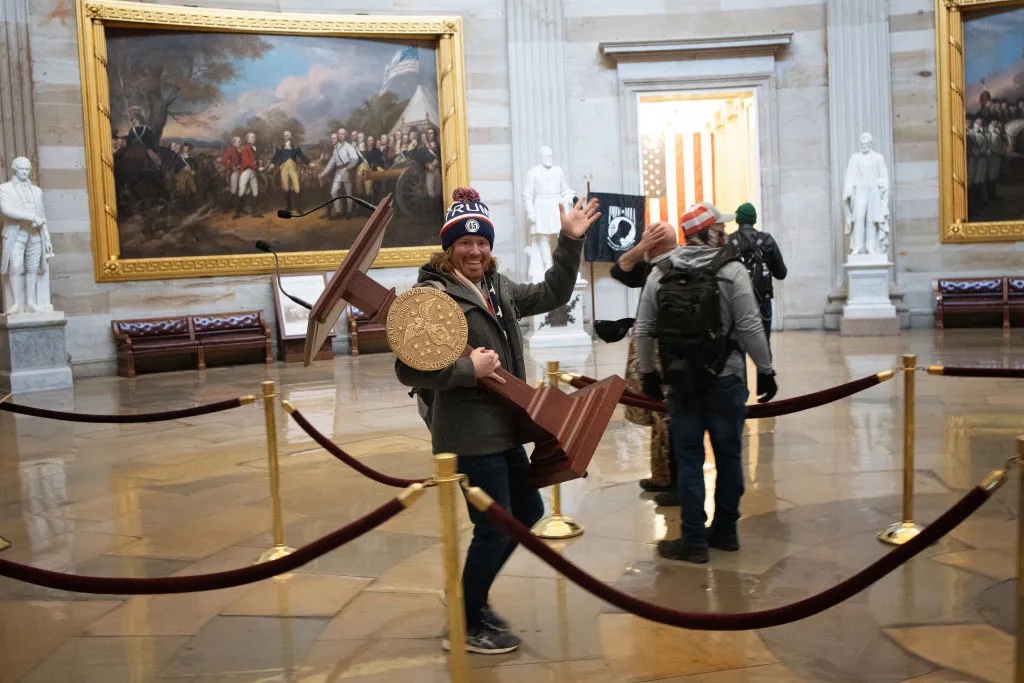My grandson Oscar (nine) shares a bedroom with his cousin Lucas (eight) and sits next to him at school. Before this year, for one tragic reason and another, Lucas hadn’t been to school for two years. So Oscar has been mentoring him in mathematics and spelling and before they go to sleep reads to him. (At the moment they’re reading Stig of the Dump.) Last week, on the final day of the school year, Lucas was given the Star Pupil of the Year award. Oscar cried.
To reward them for their combined efforts I handed out cash and took them last week to Dartmoor Prison museum, situated within the grimly massive granite walls of the old prison dairy, for a treat. The bloke taking the money was a prison officer and a Scot. As we approached his counter, he leaned over and clapped Lucas in a pair of cast-iron mid-19th-century handcuffs and promised to return him to us after two weeks.
Lucas is small for his age, inhabits a world of his own making, and mumbles. When coaxed out of his imaginary world and into the real one, however, he makes ridiculously definitive, adult statements about it, which I suppose compensates him for the appalling uncertainties of his infancy. ‘Can you make it a month, please?’ I said. Lucas easily slipped his hand out of the manacle and glided away to inspect a foot-high model of Notre Dame cathedral made of spent matches.
The officer hadn’t yet finished whetting our appetites for what lay ahead. Now he set aside the heavy cuffs and came at Oscar with a sword. And what a sword. The no-frills design combined practicality with maximum brutality. It was short — about 18 inches long — with a slightly curved blade and a knuckle guard. Standard issue, said the warder, for his mid-19th-century predecessor. He diverted the point away from Oscar’s sparrow chest and handed the sword over. ‘Notice the material covering the grip?’ he said. ‘What do you think it is?’
Lucas wandered back and the three of us examined the grip. Whatever it was, it was rather beautiful. We gave up, we said. ‘Shark skin,’ he said proudly. ‘Blood is slippery. Shark skin gives the best grip when it’s flowing. Now then. What else tells you that this sword was meant for business?’
We shook our heads.
‘See this groove running the length of the blade? It’s called the blood gutter.’ He reclaimed his sword, ran his finger lovingly along the groove then viciously thrust the blade into an imaginary opponent’s chest, where it stuck fast, unbalancing him and making him topple forward. ‘See? Now I’m vulnerable to a counter blow. And that’s what happens when your sword hasn’t got a blood gutter.’ He stepped back and struck again at his imaginary assailant, this time with balance and composure, stabbing him repeatedly. ‘See? The blood gutter breaks the vacuum and I can slip the blade in and out with ease.’ My grandson and his cousin, who must have machine-gunned hundreds of thousands of their video game enemies to kingdom come, nodded obediently; thankful perhaps that violence these days comes with a screen between it and the observer.
Before he let us pass, the officer drew our attention to a small wooden board with changeable numbers. Today’s number was 624. ‘That’s how many prisoners there are in Dartmoor Prison as from this morning,’ he said. ‘Men and women?’ said Oscar. (Admirable question, I thought.) ‘All men,’ said the warder. ‘Category C: non-violent, white collar, sex offenders.’ Wondering whether this was a single criminal category or three separate ones, we wandered in.
Dartmoor Prison was built in 1809 by and for French and American prisoners of war, then closed, then reopened in 1850 as a gaol for the natives. The initial intake, combed from the nation’s existing prisons, comprised mainly invalids, imbeciles, and one-armed and one-legged men. Initially these were kept in individual cells made of cast-iron. To find oneself in a cast-iron cell, in a granite prison, in the middle of Dartmoor, with only one leg, it must have been difficult to retain one’s sense of humor, I imagine.
Our first stop was the museum’s collection of confiscated home-made knives. This interested all three of us, I think because the desperation of the makers was apparent in the utilitarian nature of the designs and the clumsiness of the execution. The exception was a sleek dagger made entirely from matchsticks and varnish which was also pleasing to look at. But Oscar’s mind was elsewhere, previously arrested not by the savage implications of the sharkskin sword grip or the blood gutter, or by the comedic, bloodthirsty relish of the prison officer, but by something graver. ‘But why are they all men?’ he said, finally.
This article was originally published in The Spectator magazine.

























